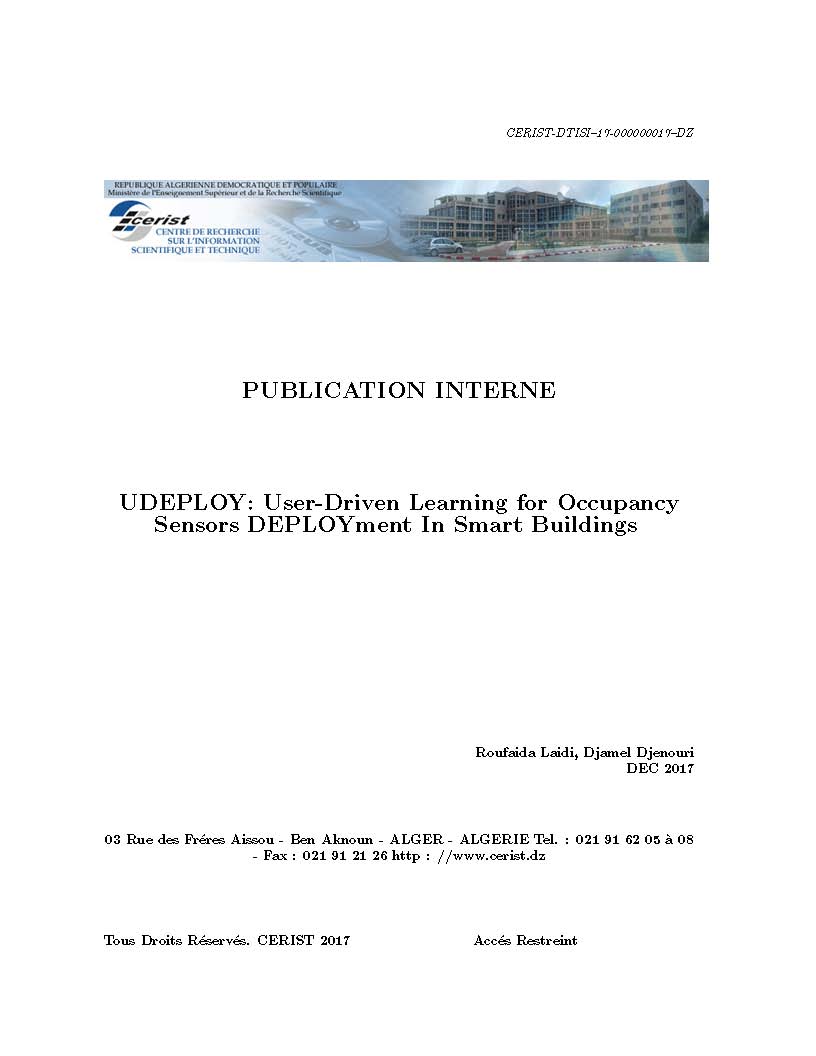UDEPLOY
User-Driven Learning for Occupancy Sensors DEPLOYment In Smart Buildings
Autres Ecrit par: Laidi, Roufaida ; Djenouri, Djamel ; Publié en: 2017
Résumé: A solution for motion sensors deployment in smart buildings is proposed. It di erentiates the monitored zones according to their occupancy, where highly-occupied zones have higher coverage requirements over low-occupied zones, and thus are assigned higher granularity in the targeted coverage (weights). The proposed solution is the rst that de nes a user-driven approach, which uses sampling of occupants' behavior to determine the zones and the coverage weights. The samples are acquired during a short learning phase and then used to derive a graph model. The latter is plugged into a greedy, yet e ective, algorithm that seeks optimal placement for maximizing detection accuracy while reducing the cost (number of sensors). Practical aspects such as the scalability and the applicability of the solution are considered. A simulation study that compares the proposed solution with two state-of-the-art solutions shows the superiority of the proposed approach in the accuracy of detection (increased coverage), and scalability (reduced runtime).
Edition:
Alger:
CERIST
Langue:
Anglais
Collation:
15 p. ill.
;30 cm
Thème
Informatique
Mots clés:
Occupancy monitoring
Smart buildings
Sensor Deployment
Machine learning
Note: URI: http://dl.cerist.dz/handle/CERIST/908

